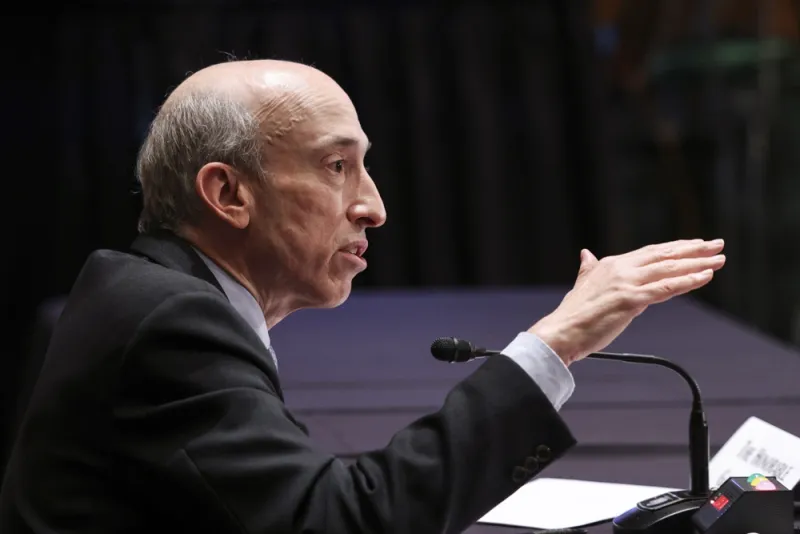Institutional investors believe the retail trading frenzy in stocks like AMC and GameStop should usher in a new era of regulation, including those that cover equity market structure.
Among the retail trading-related topics the SEC is considering, payment for order flow was a clear standout for buy-side traders. In fact, 41 percent of participants surveyed by Coalition Greenwich said it’s the most important set of practices that the Commission should address.
Coalition Greenwich, which provides strategic benchmarks, data, and analytics, recently polled buy-side traders on the SEC’s long list of priorities, including best execution, gamification, and market concentration. The survey also includes traders’ views on topics that the SEC may address, including cryptocurrencies, decentralized finance, short-sale disclosures, and the impact of new exchanges.
SEC Chair Gary Gensler has signaled his willingness to implement more regulations in the market than previous administrations — that means many of these proposals could come to fruition.
Twenty-nine percent of respondents said best execution is the most important issue to address as part of the retail trading question, followed by gamification (18 percent) and market concentration (8 percent).
Coalition Greenwich’s Shane Swanson said traders’ views on retail regulation stood out to him as the most critical findings of the survey, particularly as the SEC is expected to be quite active over the next few years.
“I think it’s fair to say that this administration has a very aggressive agenda,” said Swanson, a senior analyst, who authored a report accompanying the poll. “They're not shy about speaking about it. They have a lot they want to accomplish. They are willing and able to put forth pretty broad-based proposals.” What marked the SEC’s 2021 proposals — and those ahead in 2022 — is a growing interest in regulating retail-related trading issues.
“We have been asking market structure-related questions over the last several years, but we have not had as much quite a retail focus in the past,” Swanson said.
Payment for order flow, a longstanding industry practice, is a model in which a market maker pays a pre-set fee to a broker, ensuring best execution as long as the market maker routes trades through their platform. As Robinhood’s no-commission model came under fire in 2020, retail traders began to wonder whether their trades were really receiving the benefit of best execution.
According to Coalition Greenwich, opinions on the practice vary widely.
“You may believe that PFOF is either a well-regulated part of the trading landscape or a part of an insidious system rigged against all but the biggest players,” the report said. “For either side, however, it is clear that execution quality and PFOF are linked—whether for good or ill depending on your viewpoint.”
And the SEC is considering ways to regulate it.
“They’ve been careful not to limit what they might do,” Swanson said. “They have, on multiple occasions, said ‘everything is on the table.’ Whether or not they make it through proposal is something we’re waiting for on bated breath.”
According to Swanson, possible regulations include enhanced reporting, promoting competition on an order-by-order basis, or an all-out ban, among others.
“Every one of those threads becomes part of that tapestry as to how we promote what is or is not best execution,” Swanson said.







